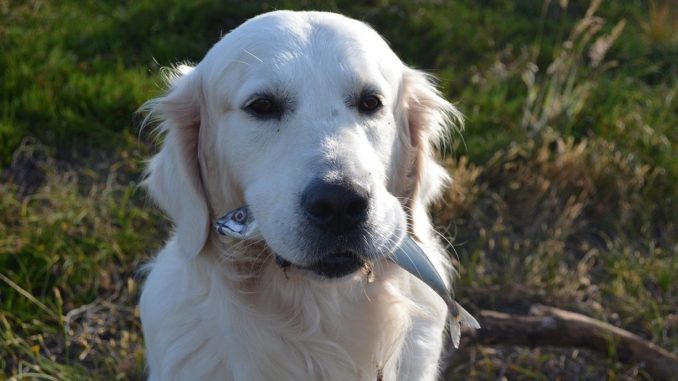
Dogs love eating fishes but tuna is what they love the most. If one day you let an open can of tuna fish and it disappears in a second, you might be asking: is tuna good for dogs? Can dogs eat canned tuna? In this article, we are going to try answering this question.
The benefits for a dog to eat tuna
Eating fishes has plenty of benefits for both humans and animals. First of all, the first benefit that provides tuna is a large amount of protein. Tuna is rich in protein and giving your dog tuna will allow them to benefit enough protein on their diet.
In another way, tuna provides a lot of different proteins like omega-3. This protein can help your dog to have a healthy coat, prevent the coat’s inflammation, and prevent itching. Both Omega-3 and proteins are necessary in order to have a healthy dog because these two proteins act on blood pressure and cardiovascular health.
Moreover, tuna fish contains plenty of other vitamins:
- vitamins B including vitamins B3, B6, and B12. Those vitamins will give energy.
- magnesium, which helps with neuromuscular transmission and prevents stress.
- potassium in order to maintain normal functions of cells, nerves, and muscles.
- selenium to clean the body with antioxidants.
- vitamin D to maintain strong bones.
To answer the question: Is tuna good for dogs? Theoretically yes, but you will see that is not that simple.
Which tuna is good for dogs?
In oceans, there are more than 20 different species of tuna. However, only five of them are fished for eating. You might sometimes be asking if albacore tuna is good for dogs or if yellowfin tuna is good for dogs.
As we said, five species are fished for eating: yellowfin, albacore, bigeye, Bluefin, and skipjack. Some of them are really good for dogs, others are not.
The biggest problem with tuna is mercury poisoning that can occur after eating. In the deep part of the ocean, there is mercury everywhere. The biggest tuna species like Bluefin or Bigeye are carrying much more mercury than the others because they live there most of the time. To give tuna to your dogs, you might take albacore or skipjack because they live at the surface, their mercury poisoning is less important.
How to feed dogs with tuna fish?
As we said, tuna fish can be both good and bad for dogs. In order to protect your dog, you will have to space giving tuna. The frequency of feeding with tuna fish is really important. Tuna is good for dogs as long as you follow the next guidelines.
Based on your dog’s weight, you will have to limit how much tuna your dogs can eat.
- For a dog weighing 20 pounds, you can give a whole can of tuna every 3 weeks for most of the species and every 10 weeks if it is albacore.
- For a dog that weighs 40 pounds, which is a medium-size dog, you can give a whole can every 9 or 10 days. If you want to give your dog albacore, you will have to give it every 4 weeks to your medium-size dog.
- For a large dog that weighs almost 90 pounds or more, a whole can of tuna every 5 days should be good.
- For a very large dog that weighs over 150 pounds, which is an extra-large dog, you can give tuna fish every 3 days and albacore every 9 days.
What types of tuna can you give to your dog?
The last thing you have to think it is what type of tuna fish you can give. Can a dog eat canned tuna? Or raw fish? We are going to answer these questions.
First of all, we are going to answer the last question: can a dog eat raw fish? You should never give raw fish to your dog, whether it be tuna or any other fish. Raw fish can carry multiple bacteria and parasites that can be harmful to your dog. if it is not treated, fish poisoning can be fatal for your dog. Raw tuna carry an enzyme called thiaminase which will make your dogs inactive.
On the other hand, canned tuna and cooked tuna are really good. Both of them are containing cooked tuna and we all know that cooking kills every bacteria in products. Canned tuna is the safest solution for your dogs. If you follow the previous guidelines, there will not be any trouble for your dog.

Leave a Reply